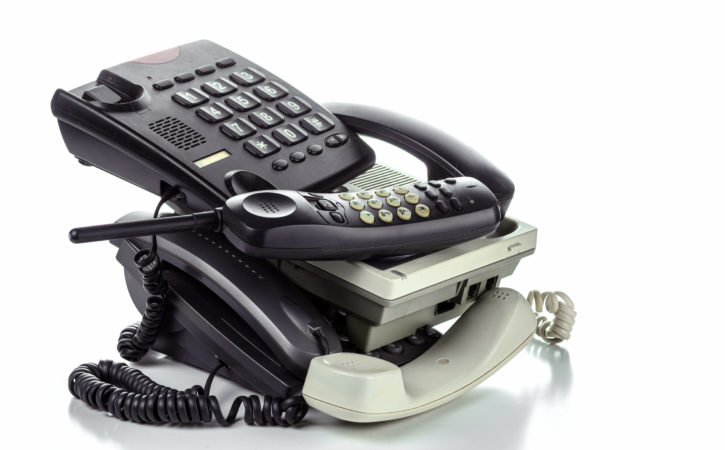
Let’s find what you’re looking for. Search our resources, blog, pages, and any other content on our website.
If you’ve been in business for more than a couple of years, it’s likely you’re still using legacy technologies.
The problem is that technology evolves quickly, and legacy technology can slow the growth of your business. When your competitors upgrade their technology, you could be left with systems that are inefficient, lack adequate security, and are expensive to operate and maintain.
In the telecommunications arena, not only are legacy systems typically replaced by newer technologies, but there are times when legacy technology is decommissioned by major providers. In those situations, it’s essential to transition sooner rather than later.
Most recently major providers have begun to phase out copper wire services. Those services include plain old telephone service (POTS) and primary rate interface (PRI). Copper-based services have historically been the workhorses of the telecommunications industry. In fact, POTS was first put into place in the 1880s.
AT&T, Verizon, and other large telecommunications providers petitioned the Federal Communications Commission (FCC) to end competition for traditional copper-based services. The providers argued that the technology was old, inefficient, expensive to maintain, the demand had fallen off significantly, and there were newer technologies that were far better.
The FCC then issued an order that was put into effect on August 2, 2022. The order allows providers to abandon POTS lines. It means that providers aren’t required to maintain those lines since they are already degrading, nor do they have to make POTS lines available to their customers.
Naturally, that order doesn’t mean that companies like AT&T and Verizon will immediately cut off their customers who are still using copper-based services. It does mean that the cost of using these legacy technologies is increasing substantially. At some point, due to the excessive cost to maintain the lines or an inability to maintain such old technology, POTS and PRI services will need to be eliminated.
Price increases are necessary for providers to recover the costs of keeping these copper wire services running – but increased costs are also part of the providers’ attempt to motivate customers to change over to newer technologies. This transition will affect your network lines, copper internet lines, telephone lines, and fax lines that are currently using this legacy technology. Any network connection that is not being delivered using a fiber-optic, wireless, or coaxial connection is likely to be affected.
If you have copper-based services, you probably have already experienced increases in your costs that will continue to rise and strain your budget. But there are other problems you’ll run into.
Copper wire is sensitive to the elements. As the providers slow down their maintenance of this technology, you’ll risk more outages and fewer ways to fix them. Copper-based services are also limited in their capacity, which will make it difficult to grow your business and maintain a competitive edge.
The ability to send and receive faxes is still a requirement for many businesses, in large part because of the need to meet security and compliance requirements. If your fax service is unreliable or unavailable at times, it will slow down the pace of your business.
POTS and PRI services can’t take advantage of many of the capabilities offered by service providers such as collaboration tools and support for mobile technologies. This has caused some companies to acquire the technology they need from different providers, causing confusion and increased costs.
The solution will be different for every company. There are a variety of voice and data services that will help you move away from copper-based services and into the realm of leading-edge technology.
For example, you can leverage the power of voice over internet protocol (VoIP) technology to support remote workers, reduce equipment costs, and abolish long-distance calling charges. The latest SD-WAN technology can help you avoid internet interruptions. Or, you may need a cloud-based unified communications system to elevate your phone system and align your business communications with your company’s strategic goals.
It’s important to have a trusted IT provider like Access One to help you make the right decisions during this critical transition. Your IT team has a lot on its plate, and you may not have the in-house expertise you need to migrate away from legacy technologies. As a trusted advisor, Access One will be there to guide you while evaluating your requirements and helping to implement modern, flexible, scalable solutions.
Make sure you enter this next phase of your technology journey with the right tools and the expertise to make them work effectively for you. Access One is known for its exceptional customer service and cutting-edge network. We help our customers succeed using a modular business technology framework that leverages our telecom network, hosted phone systems, managed IT, and cloud services.
Contact the experts at Access One to discuss the next step in your technology journey.